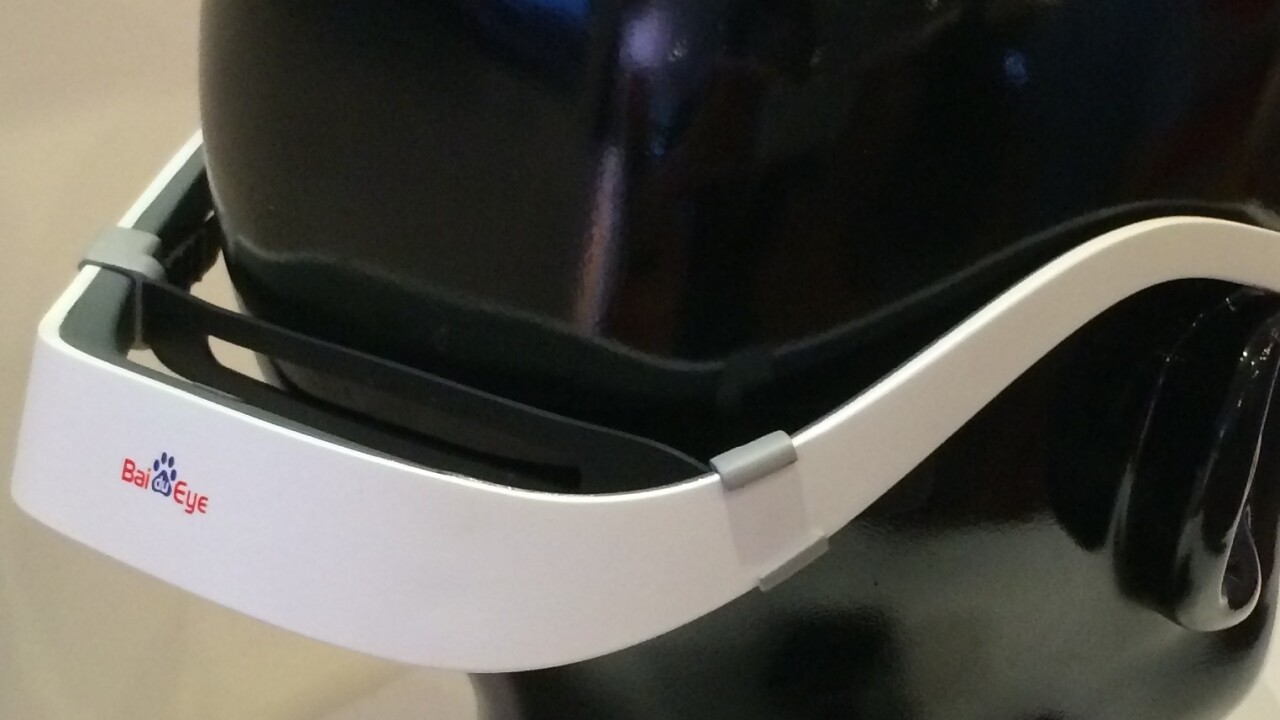
Many thought that Baidu’s announcement of Eye, its Google Glass-like wearable, in early April 2013 was a well-timed April Fools’ joke, but today the Chinese tech giant demonstrated the device for the first time. Most notably, Baidu’s product doesn’t include a screen.
The headset was put on display at Baidu World, the company’s annual showcase event in Beijing, today. Baidu Director of International Communications Kaiser Kuo told TNW that the device is still a prototype, but there are plans to make it available for consumers some time in the future. (Baidu previously stressed that Eye was an experiment, so things are progressing on that front.)
Kuo explained that there is no screen on the device because “we found that screens impair vision and tire your eyes easily.” Instead, the device pairs with a smartphone or tablet to provide the kind of functionality that you’d get from a screen. Not including a screen saves on energy which makes the battery last a lot longer, Kuo said, while he also claimed that it helps keep the design light and easy to wear.

Here’s what Baidu Eye looks like from a front perspective:
Who are the Baidu Eye Explorers? Reax? MT @ PDChina #Baidu on Wed launched “Baidu Eye”, similar to @googleglass pic.twitter.com/9x2DunS0TJ
— Kristie Lu Stout CNN (@klustout) September 3, 2014
The Baidu Eye prototype does support voice- and gesture-based commands. It connects to the internet via a WiFi connection or mobile hotspot rather than independently like Google Glass.
So what can it be used for? Kuo gave us a basic outline for the prototype at this point:
Basically Baidu Eye allows the user to analyze images and provide information or services related to your current field of vision or a specific item. You can use voice commands, or gesture commands (like expanding to zoom, or circling an object in your field of view with your finger). You can identify plants, or find products (so far, handbags and articles of clothing) on e-commerce sites. The use case scenarios for now are limited, but we’ve got an enormous data set of clothes, bags, and flora right now.
Baidu is planning to integrate Eye with social networks and gaming, as well as hands-free activities like taking photos and videos or answering calls. But, at this point, Kuo says that these features are not included in the demo version of the product.
There are plans to introduce resources to let developers create apps and supported services for Eye, but Baidu hasn’t said when they will be released.
The initial announcement of Baidu Eye made for inevitable ‘Google Glass clone’ comments — particularly given the similarities between Google and Baidu’s businesses in general — but there are certainly marked differences between Eye and Glass.
Baidu is stressing that Eye is still in development, but while Google has found ‘Explorers’ who have paid to essentially be guinea pigs as Google Glass is developed, the Chinese firm is taking a distinctly more private route.
Images via Baidu
Get the TNW newsletter
Get the most important tech news in your inbox each week.





